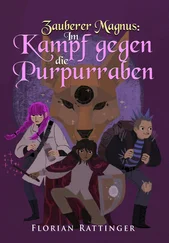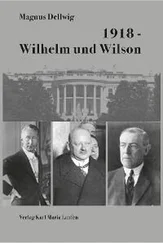‘I think you’re adopted,’ one of the brothers would say.
‘No, you are,’ the other one said.
‘No, you.’
‘No, you.’
They had just learned the meaning of the word ‘adopted’, not the word ‘absurd’; they played it only in the privacy of their rooms when they knew nobody could hear them, and it never occurred to Albert that deep down Tobias suspected that maybe, against all laws of logic, he was indeed adopted.
Their father was often not sure who was who, but he always assumed that his ‘good son’ had to be Albert. Some of the time he was right because to Gerhardt, being good meant smiling at the right time. Smiling on the outside, that is. Albert’s insides often looked different from what he let on. When he felt a bad mood come upon him for no reason at all it could last for days, and that’s when he encouraged his brother to take over and become him for the duration of the depression. This maintained the illusion of a perpetually good-humoured Albert.
Albert loved being himself and his self-esteem grew faster than his body. Tobias loved being Albert, more so when he got to have sex with girlfriends Albert had lost interest in. Nobody ever caught on to their charade, and they only stopped when Albert started dating Cordula after a Corpus Christi procession that she insisted they go to. He knew immediately he wasn’t going to share her with anybody, and he was reasonably sure he would never have got away with it if he tried. Cordula knew him too well, read him like a page-turner and couldn’t get enough of him. His mood swings became rare and he took their dating seriously, was a warm, attentive listener and never pushed her for sex. He would wait until it was right and proper, sanctioned by her church for which he lacked respect, and by her father, for whom he didn’t.
When he started to work in the office of his future father-in-law nobody begrudged him the preferential treatment he grew accustomed to. On the contrary, it was understood that he would become the boss when the time came. Back then he was charismatic, intelligent and hard-working, as well as effortlessly easy to like.
Before long, Cordula’s father Johan Schwaiger became gravely ill, a consequence of his lifelong exposure to asbestos. He was dying to hold his grandson – figuratively at first. Soon he followed through literally, and Albert agreed to marry Cordula a year earlier than planned. The wedding was a grand affair.
Nine months later Markus came into the world, as healthy and lively as boys will, while his maternal grandfather was barely hanging on. Johan’s wife Liselotte was torn between the happiness of grand-maternity and the grief over Johan. She remained of this earth only a year longer than her spouse. She had always been a frail woman, forever marked by her ghastly experiences on the run in 1945. Her family stemmed from Silesia, a former part of the country in the east that was seceded to Poland after the war in reparation for damages inflicted. The Russian soldier who chased them off their property had taken a liking to her that Liselotte never reciprocated. The baby she carried arrived stillborn eight months later and nearly killed her in the process. When she settled in Eschershausen with her Auntie Annie, she was a broken woman.
In 1972 Cordula inherited the factory and the family fortune jointly with her (by then bed-ridden) great-aunt Annie. Initially nobody rocked the corporate boat, but board members knew a reshuffle was imminent and necessary and with Albert now at the helm, trust was not an issue.
Yes, for the first twenty-nine years of his life Albert had been happy to an unreasonable degree. Now his existence was inconsequential, a two-dimensional shadow play. On days when he bothered to shave he hardly recognised the reflection glaring back at him in the looking glass. Even his famous smile failed to dazzle now, least of all himself. Not a single day went by that he didn’t recall the former domestic soundscape, a delight he used to take for granted – Cordula’s uninhibited laugh, Markus’ tiny feet running over the parquet. His grief was so deep that he wondered why it didn’t finish him off like it had Liselotte, Cordula’s mother. Surely it was at least at strong as hers.
Increasingly he wished it would.
He knew thoughts like that were sinful and unchristian, but of late he had stopped caring. Purgatory couldn’t be worse than what he was going through now, day in, day out. The accident hadn’t paralysed him physically but it had crippled him emotionally.
Why me? Why did I survive when they didn’t?
*
It happened in 1978, a few days after the Christmas celebration that was supposed to be Markus’ best ever. They overshot their own expectations by miles. On the evening of December the twenty-third, Albert brought home a two-metre-plus pine tree and locked the living room door from the inside. On the morning of Christmas Eve he played records of Bach’s Christmas Oratorio and Silesian choirs singing Christmas songs sandwiched between tracks of solemn voices reading from the nativity story — Matthew or Luke — like his father had done when they were kids. Also like his old man he considered American crooner-carols by Bing Crosby, Dean Martin et al to be cheesy and crass. They were competent singers of jazzy pop tunes, but they made everything sound banal, casual, commercial – anything but truly festive.
Markus was busy baking cookies with his mother in the kitchen when he wasn’t trying to sneak a peek at the tree his father was busy decorating, lovingly placing strips of tinsel, blade by individual blade, one by one until it would look just right. Lunch was Silesian veal sausages with sweet gingerbread sauce followed by a digestive winter walk to collect moss for the wooden, hand-carved nativity scene. The combined scents of the baking, the freshly cut tree and the humid moss contributed immensely to the season’s atmosphere.
After coffee they put Markus to bed for a nap. The evening would be long, though the boy was too excited to get much rest beforehand. Later Tobi arrived for dinner with Dad in tow. Auntie Annie was collected from the local old people’s home though the roasted duck was too fatty for her delicate stomach and she left her plate mostly untouched. Everybody wore Sunday clothes, sang carols and read the nativity story from the bible.
Markus said, ‘Why doesn’t Santa come to our house?’
Cordula turned up her eyes. She had explained this many times but she knew he wouldn’t let it rest unless Albert said the words himself.
‘Because Santa doesn’t exist,’ he said.
‘But where do all the presents come from?’ Markus said.
By now they had reconvened to the living room where the glorious smell of fresh fir and real wax candles made the house glow with the spirit of a classic German Christmas.
‘I’ll answer that one, if you don’t mind,’ Tobi said. He was tempted to make a joke but held back as he was all too aware that Christmas was not a time for pranks in his brother’s house. ‘We’re celebrating the birth of Jesus and we’re so happy he was born and that he loved us that we buy presents for each other. The man with the red costume and white beard that you saw on 6 December…’
‘…was Saint Nicklaus. I know, Uncle Tobi, I know. What do you think I am, a baby?’ Markus said.
At midnight they went to midnight mass. It was Markus’ first year, the first time he insisted on going so they woke him after he had nodded off at half past ten. After mass came, at last, the exchange of presents. Albert could never get enough of the memory of the glow in his boy’s eyes when he opened the wrapped boxes. His own eyes matched his son’s when Cordula whispered in his ear what she had known for almost a week, but kept secret until that moment. Next year they’d have another mouth to feed. She was pregnant again.
Читать дальше












